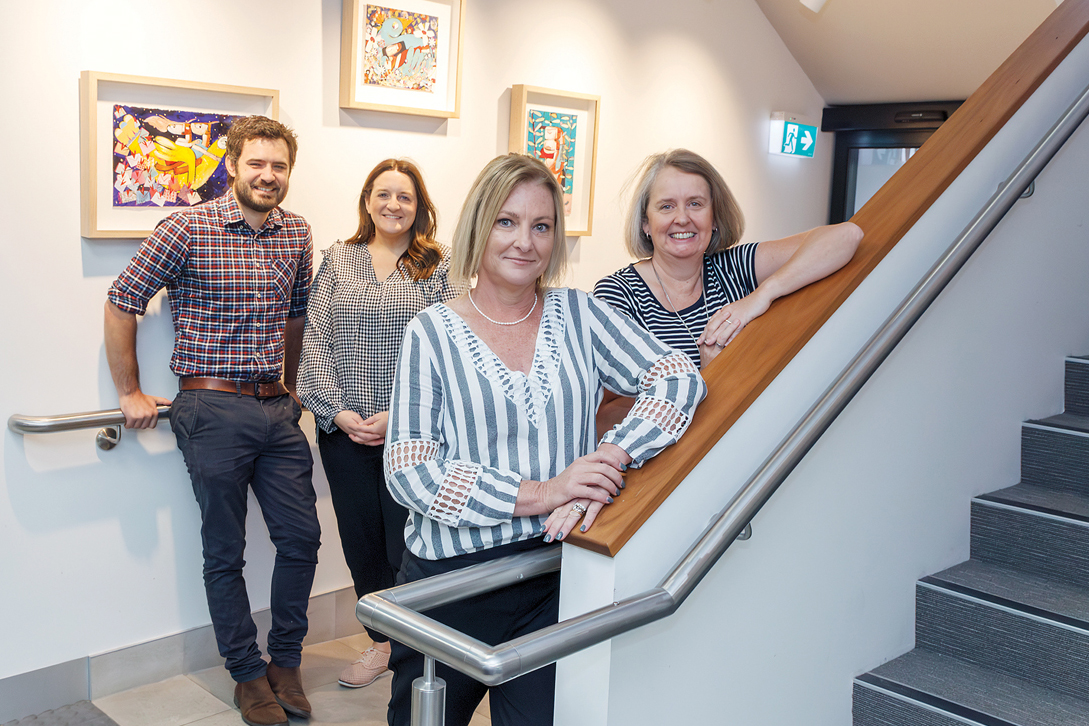A 12-month project on the Mornington Peninsula to improve end of life care in residential aged care centres could set a new standard for the treatment of people with life-limiting illnesses.
The government financed Community Palliative Care in Aged Care Project is being administered by Peninsula Home Hospice in Mornington.
The not-for-profit organisation provides specialist palliative care to people in their home, whether that be residential aged care or the family home.
Its team of medical and support professionals focuses on optimising quality of life for people diagnosed with a palliative illness.
The project follows on from the Royal Commission into Aged Care, which made 11 palliative care and end-of-life recommendations. The recommendations included that palliative and end-of-life care should be considered a core business for aged care providers and that pain must be minimised, dignity maintained, and residents’ wishes respected. Their families should be also supported and informed.
Peninsula Home Hospice CEO Janet Phillips said aged care centres were often a person’s final place of residence before they died, and that the model being trialled aimed to ensure high quality end-of-life care was provided.
“The Royal Commission into Aged Care heard cases where care provided to people in their last weeks and days of life was severely lacking and fell well short of community expectations,” she said.
“In response to these findings, we are very excited to commence this pilot project that will increase palliative care support for residents in three aged care facilities across our catchment – from Portsea to Mordialloc Creek – with the new model using palliative care needs rounds where the staff at the aged care facility will discuss any residents that need specialist palliative care with Peninsula Home Hospice’s aged care team.
The team consisted of medical palliative care consultant Dr Lizzy Gascoigne, specialist palliative care nurse Tania Bhasin and counsellor case worker, Daniel Shaw.
“Peninsula Home Hospice is strongly advocating for increased government funding so this support can continue and expand when the project ends in 12 months’ time,” Phillips said.
The team at Peninsula Home Hospice was working with aged care providers and staff to reduce patient presentations to emergency departments, under a “stop and watch” system where all staff were involved in monitoring changes to a resident’s condition.
Such close observation often involved tracking of chronic disease and effective and constant communication between care givers.
“This system encourages better communication between all staff who deal with a patient, empowering staff and putting the residents’ needs first,” Phillips said.
“What we know is that if we can manage pain and illness well, and keep people in their comfortable, familiar surroundings, they do better, they are happier, and they have a better end-of-life experience.”
The hospice was started almost 40 years ago by volunteers who wanted to ensure those wanting to stay in their own home as they faced a life limiting illness were able to do so. Since then, PHH has evolved into an accredited specialist community palliative care service that receives state government money and additional fundraising and philanthropic grants.
In 1998, PHH won a Department of Human Services tender to provide a comprehensive palliative care program delivered by a team of professional workers and volunteers – a model that is still in use.
PHH services are available free to those who need palliative care on the peninsula, in the City of Frankston and part of the City of Kingston.


